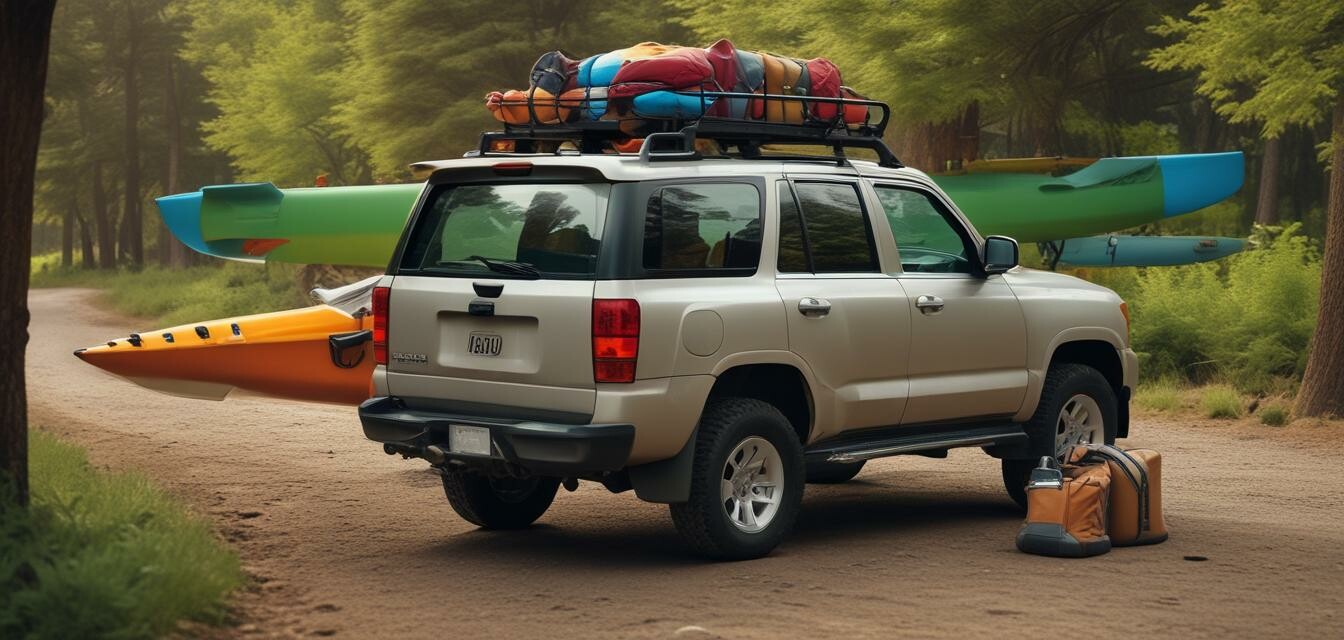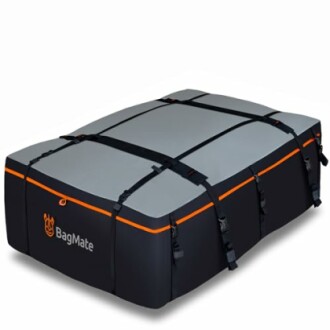
The Ultimate Guide to Choosing the Right Roof Rack
Key Takeaways
- Understanding your vehicle type is crucial for selecting the right roof rack.
- Consider the weight capacity and materials for durability and safety.
- There are different styles of roof racks (fixed, removable, crossbars) to match your needs.
- Proper installation and maintenance are key for optimal performance.
- Compatibility with additional accessories can enhance usefulness.
When it comes to maximizing your vehicle's storage capabilities, choosing the right roof rack is essential. With an array of options available, selecting the best one can seem daunting. This comprehensive guide covers what you need to know about roof racks, including their types, features to consider, and tips for usage, ensuring that you make an informed decision for your next adventure.
What is a Roof Rack?
A roof rack is a set of bars secured to the roof of a vehicle. They allow you to carry additional cargo such as bikes, kayaks, and luggage. The right roof rack can turn your vehicle into a versatile transport machine, suitable for all kinds of activities and journeys.
Types of Roof Racks
| Type | Description | Ideal For |
|---|---|---|
| Fixed Roof Rack | Permanently attached to the roof | Frequent travelers or outdoor enthusiasts |
| Removable Roof Rack | Can be quickly removed when not in use | Occasional users looking for flexibility |
| Crossbars | Run perpendicular to the vehicle | Bikes, kayaks, and larger cargo |
| Clamp-On Racks | Clamped to the roof without drilling | Quick installation on multiple vehicles |
Factors to Consider When Choosing a Roof Rack
- Vehicle Type: Ensure compatibility with your vehicle's make and model.
- Weight Capacity: Know how much weight the roof rack can hold.
- Material: Look for materials like aluminum or steel for durability.
- Type of Cargo: Choose a rack that suits the type of equipment you’ll be carrying.
- Installation: Consider whether you prefer a permanent or removable option.
Product Recommendation
Heavy-Duty Waterproof Roof Bag
The ultimate luggage carrier for all your adventures with a capacity of up to 23 cubic feet.
Learn MoreInstallation Tips for Roof Racks
- Read the manufacturer's instructions thoroughly before starting.
- Ensure you have all necessary components and tools ready.
- Check the roof rack mounts are clean and free from debris.
- Securely tighten all bolts and straps to prevent movement during travel.
- Regularly check the installation post-travel to ensure everything is still secure.
Maintenance of Your Roof Rack
To prolong the life of your roof rack, consider the following maintenance tips:
- Clean the roof rack frequently to remove dirt and debris.
- Inspect for rust, especially if exposed to weather conditions.
- Check and tighten screws and bolts to ensure integrity.
- Avoid overloading the rack to maintain safety.
Additional Accessories to Consider
There are various accessories you can add to your roof rack for enhanced functionality:
- Cargo Boxes: For secure, organized storage.
- Bike Racks: Ideal for transporting bicycles.
- Kaya Racks: Perfect for adventurous water sports enthusiasts.
- Loading Ramps: For easy loading of heavier items.
Common Questions About Roof Racks
Can I use a roof rack without crossbars?
Most traditional roof racks require crossbars for proper support. However, some models exist that do not need them.
How do I know if my roof rack is installed securely?
Give the rack a shake once installed. There should be no movement. Additionally, check all locking mechanisms and fasteners.
What are the weight limits for roof racks?
The weight limits vary by model. Always consult the manufacturer's specifications to ensure compliance with limits.
Conclusion
Choosing the right roof rack can greatly enhance your vehicle's storage capabilities and improve your travel experience. Consider your vehicle type, the cargo you’ll be carrying, and ensure proper installation and maintenance. With the right roof rack, your adventures are just a drive away!
For Further Information
Explore our other resources for more insights and guides:

